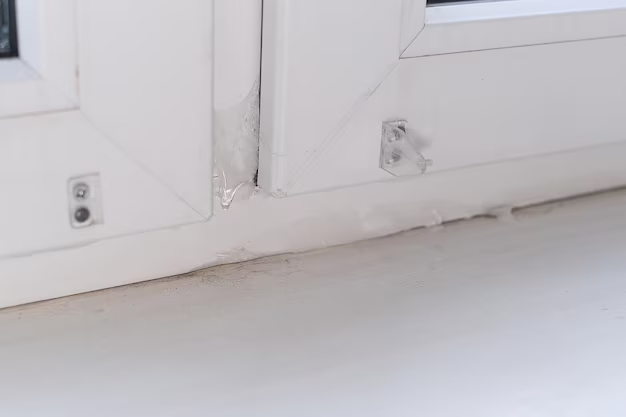Why Is Your Samsung Refrigerator Leaking Water? Understanding and Fixing the Problem
If you're wondering why there's water pooling underneath your Samsung refrigerator, you're not alone. This common issue can become a nuisance for many homeowners. But fear not! With a bit of knowledge and some troubleshooting, you can tackle this problem head-on. Let’s dive into the potential causes and solutions to help you keep your kitchen dry and your fridge working smoothly.
🧊 Checking the Most Common Causes
1. Clogged Defrost Drain
The defrost drain collects water from your freezer's defrost cycle. Over time, debris, ice, or food particles can clog the drain, causing water to back up and leak underneath your refrigerator.
- Solution: First, locate the defrost drain. It’s usually at the back of the fridge or freezer compartment. To clear a clog, use a mix of warm water and baking soda. A small pipe cleaner or turkey baster can help push the mixture through the drain. Regularly clearing food particles can prevent future clogs.
2. Improperly Leveled Refrigerator
If your refrigerator isn’t level, water might not flow properly to the drain pan during defrosting, leading to puddles.
- Solution: Use a level tool to ensure your fridge is even. Adjust the leveling legs if necessary. Ideally, the fridge should tilt slightly backward to help the water flow toward the drain.
🛠️ More Specific Troubleshooting Steps
3. Leaky Water Filter
A misaligned or damaged water filter can drip water, leading to a puddle beneath your fridge.
- Solution: Check the water filter housing for signs of leaks. Ensure the filter is correctly installed and not cracked. Replacing the filter can often resolve this issue.
4. Faulty Water Inlet Valve
The water inlet valve controls water flow into the ice maker and water dispenser. If it’s faulty or damaged, it may leak.
- Solution: Inspect the valve at the back of the fridge for leaks. If you find cracks or damage, replacing the valve is the best course of action.
5. Malfunctioning Drip Pan
Some Samsung refrigerators have a drip pan designed to evaporate excess water naturally. If the pan is damaged or too full, it can spill over.
- Solution: Check the drip pan for cracks or excessive water. Empty the pan and ensure it's seated correctly. Replace it if damaged.
🔎 Digging Deeper: Additional Causes
6. Clogged or Frozen Condenser Coils
Condenser coils dissipate heat from your fridge. If they’re dirty or icy, they can't function efficiently, sometimes causing condensation issues.
- Solution: Locate the coils, usually found at the back or bottom of the fridge. Clean them with a coil brush or vacuum cleaner every six months to ensure proper functionality.
7. Damaged Door Gaskets
Worn door gaskets can cause warm air to enter, increasing humidity and condensation inside the fridge.
- Solution: Inspect the gaskets around the door. If they are cracked or lose their seal, replace them to maintain efficient cooling and moisture management.
🚀 Ensuring Long-Term Success
Regular Maintenance Checks
🕒 Schedule routine inspections every month to catch issues early.
🔍 Check drains, filters, and seals regularly.Cleanliness is Key
🧽 Wipe away spills immediately.
🌬 Keep the area around your fridge dust-free.Stay Informed
📚 Refer to your refrigerator’s manual for specific guidance on model-related issues.
🆘 If troubleshooting doesn’t fix the problem, consider professional help.
📊 Visual Summary: Key Takeaways
| Issue | Cause | Solution |
|---|---|---|
| Clogged Defrost Drain | Ice, debris blocking water flow | Use warm water and baking soda, clean regularly |
| Improper Leveling | Fridge not even | Adjust leveling legs |
| Leaky Water Filter | Misaligned or damaged filter | Reinstall or replace filter |
| Faulty Water Inlet Valve | Cracks causing leaks | Inspect and replace valve |
| Malfunctioning Drip Pan | Full or damaged drip pan | Empty or replace drip pan |
| Clogged Condenser Coils | Dust or ice build-up | Clean coils with brush or vacuum |
| Damaged Door Gaskets | Worn-out seals | Replace damaged gaskets |
Final Thoughts: Keeping Your Kitchen Dry
By understanding the common reasons your Samsung refrigerator might be leaking water, you're equipped to tackle the issue effectively. Regular checks and maintenance can save you time and prevent further damage. Remember, with a little diligence and patience, you can often solve these problems without needing professional repair services. Keep your tools handy, your mind curious, and your kitchen will thank you with years of leak-free service.

